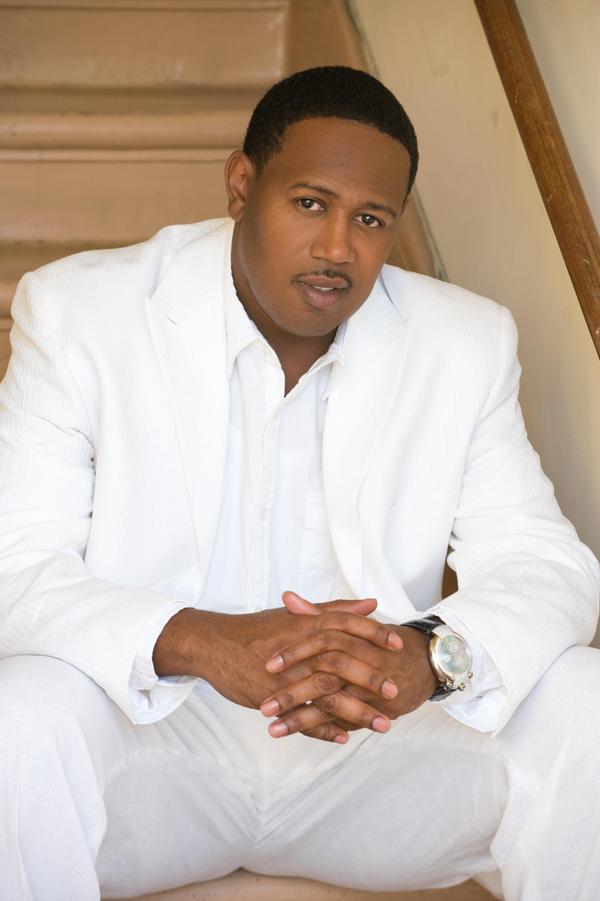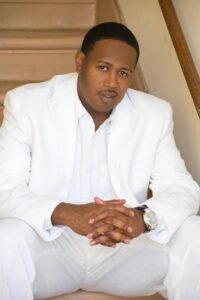Percy “Master P” Miller and No Limit Records
Percy Miller, better known as "Master P," is a New Orleans-based rapper and record producer.

MYSPACE
Master P.
Percy “Master P” Miller, a well-known rapper from New Orleans, founded the independent music label No Limit Records. Between 1991 and 2001, No Limit proved an enormous commercial success, selling more than fifty million gangsta rap albums by artists and producers, many of whom were also Louisiana natives. Miller has also produced, directed, written, and acted in a number of films and owns a cable television network, Better Black Television.
Born April 29, 1969, Percy Robert Miller was raised by his grandparents in New Orleans’s Calliope housing project after his parents divorced. Miller played college basketball briefly before being sidelined by a knee injury. Around 1988, he moved to Richmond, California, just north of Oakland, to be near his mother. Not long afterwards, his brother Kevin was murdered in New Orleans, underscoring the need for Miller to remove himself and his family from the endemic poverty and violence of his hometown.
Miller and his wife, Sonya, opened a record store in California and quickly expanded the business to include an underground gangsta rap label. Beginning in 1991, No Limit Records released albums by Master P and the group TRU (The Real Untouchables), a trio consisting of Miller and his brothers, Corey and Vyshonn, who also recorded as “C-Murder” and “Silkk the Shocker,” respectively. Despite a lack of promotion and radio play, Miller built a core audience in the early 1990s. The 1995 compilation Down South Hustlers: Bouncin’ and Swingin’ featured many up-and-coming rappers from New Orleans and elsewhere. The company relocated to New Orleans around 1995, where regional hits such as “Bout It, Bout It” helped establish No Limit’s southern credentials. Miller moved his center of operations to the state capital, Baton Rouge, in 1997.
In 1996, Miller signed a distribution deal with Priority Records that allowed him to retain ownership of his master recordings, and in the three years that followed, he produced a string of million-selling releases. Miller signed many New Orleans-based rappers, including Mia X, Mystikal, Fiend, Soulja Slim, Kane & Abel, Magic, and Skull Duggery. A production team known as Beats by the Pound (later, the Medicine Men), which included Craig “KLC” Lawson, Mo B. Dick, and Craig B, among others, supported their efforts. A distinctive groan, featured in the million-selling single “Make ‘Em Say Ugh,” became Master P’s trademark as a rapper. He released highly successful solo albums, including Ghetto D in 1997 and the 1998 double CD MP Tha Last Don.
During the 1990s, No Limit releases came to define New Orleans hip-hop for national audiences, but the label’s roster included artists from elsewhere. Miller signed the iconic West Coast artist Snoop Dogg, who released several albums between 1998 and 2001. As a businessman, Miller pursued an ambitious strategy of diversification, branching out into side ventures such as film, a clothing line, and a short-lived sports management company. He also engaged in a brief but intense effort to establish himself as a professional basketball player.
Despite a few chart successes from the 504 Boyz, a group modeled after Cash Money’s Hot Boys, No Limit’s influence began to decline in 2000. Miller ended his relationship with Priority in 2001, forging a distribution agreement with Universal Records for his revamped New No Limit label. In 2001 his preteen son, known as Lil Romeo, had a hit pop single entitled “My Baby.” For several years in the mid- to late 1990s, Master P largely defined New Orleans rap for the nation. However, his fortunes declined with the rise of another independent label from the city, Cash Money Records, to national prominence. In recent testimony before a congressional subcommittee, Miller renounced the use of profanity and violence in rap, signaling a final break from the underground gangsta rap upon which he had built his success. Nevertheless, his years as a high-rolling rap tycoon made him one of the best-known figures associated with rap music in New Orleans.
